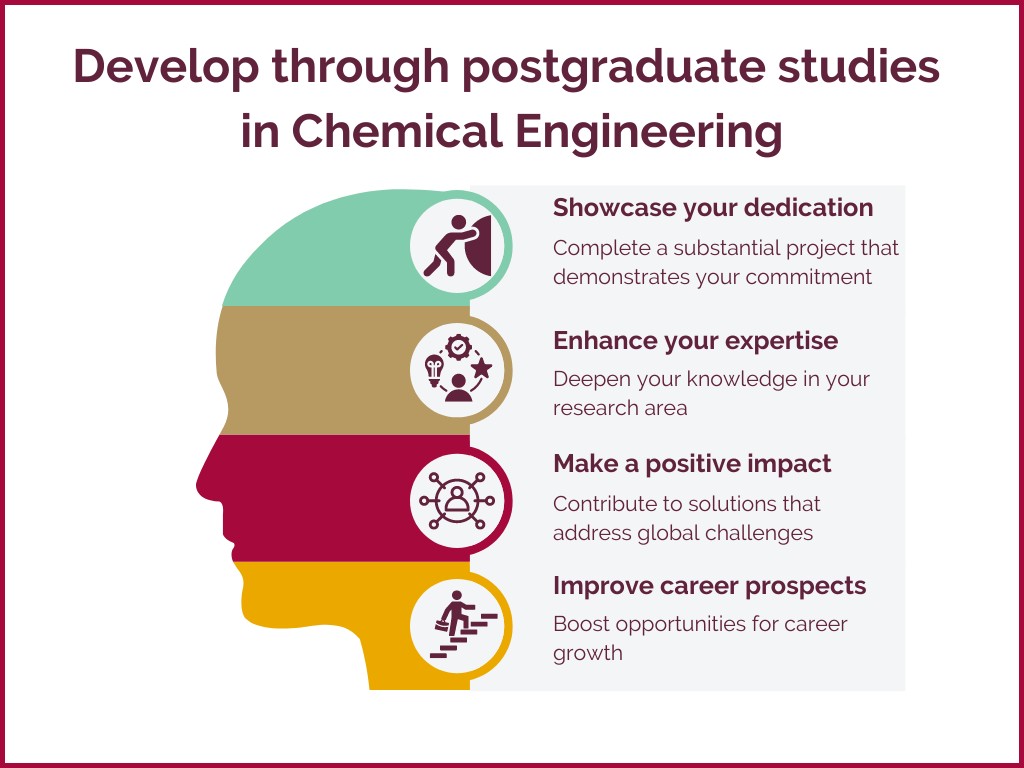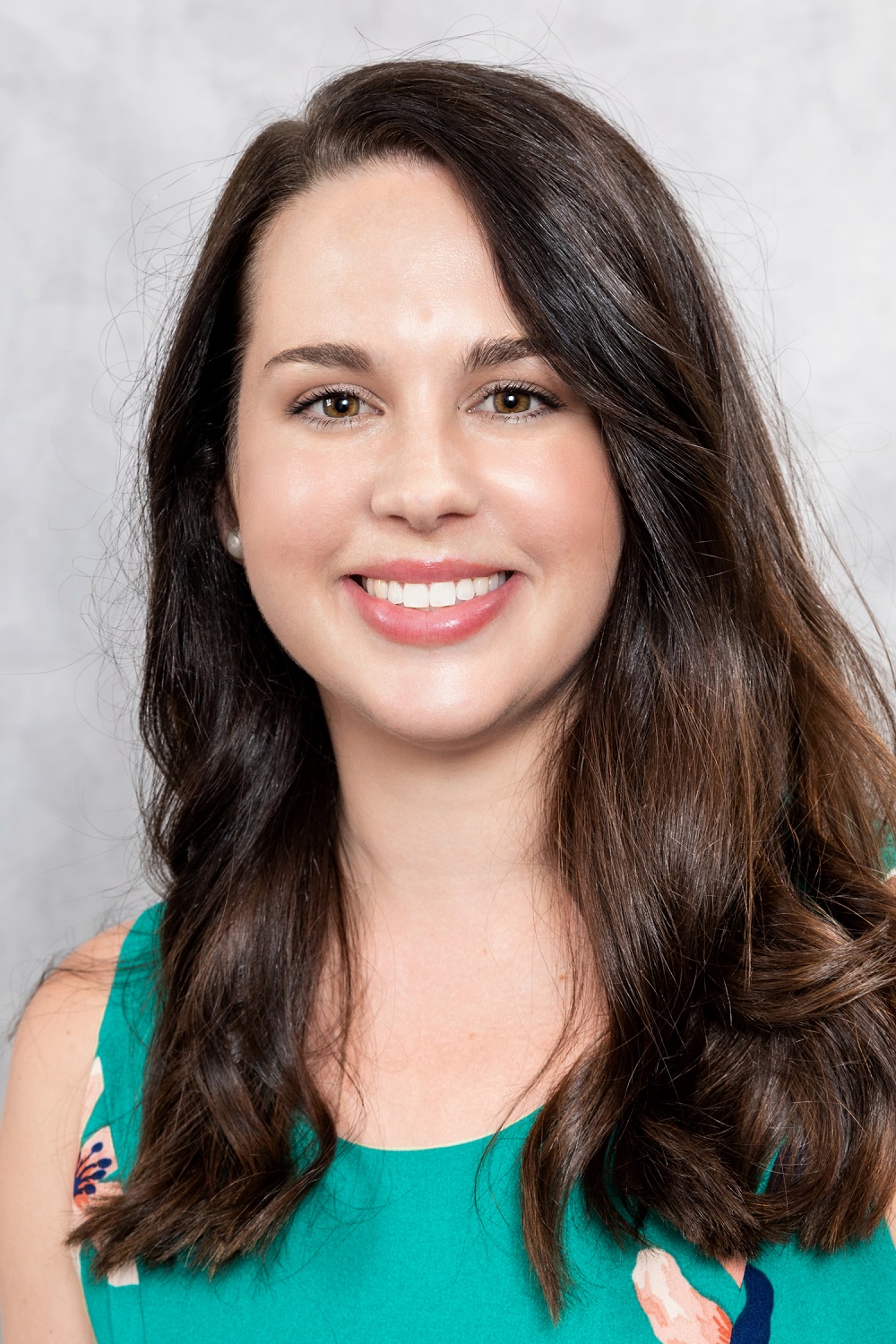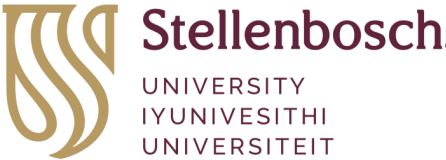
Showcase your dedication.
Enhance your expertise.
Make a positive impact.
Improve career prospects.
Programme structure
At Stellenbosch University, we offer a fully research-based Master’s degree program in Chemical Engineering.The MEng research degree programme typically requires full-time study and research under the guidance of a supervisor(s) over 18-24 months. Part-time candidates working in the industry are also considered, with enrolment extending over approximately three to four years.
For this NQF level 9 programme, students enrol in a single 180-credit module. No additional taught modules are mandatory, although students may take extra modules with their supervisor’s permission. Full-time resident students participate in an in-house research methodology module at the start of the academic year, which is attended in person at the department. Additionally, students register for a 1-credit module in their first year focused on professional communication and avoiding plagiarism (ProfCom 871). This self-paced learning module is completed via our online learning platform, SUNLearn.
The programme culminates in the submission and examination of a thesis, as well as academic articles, as part of the degree requirements.
Please note that an MEng degree is not a qualifying degree for registration as an engineer.

Full-time enrolment
- The programme typically takes around 2 years to complete,
Part-time registration
- Enrolment for approximately 3-4 years
Admission requirements
To qualify for admission to the MEng research degree programme candidates must meet the following minimum requirements:
-
- BEng/BSc Eng degree (or similar) in Chemical Engineering or a related field
- BSc Honours degree in a relevant discipline, such as Chemistry, Microbiology, Physics, Mathematics, or other related fields
- Applicable four-year Bachelor’s degree at NQF level 8
- Applicable Postgraduate Diploma
- MTech degree
Please note that candidates with a National Diploma, Advanced Diploma, or BTech qualification do not meet the minimum admission requirements for the MEng research degree programme.
For South African candidates:
- BEng / BSc Eng qualification: 65% average for a degree completed in four years, >65% average for a degree completed in five years.
- BSc Honours qualification: 65% average; preference given to those with an average of 70% or higher.
- MTech qualification: 65% average and above.
For international candidates:
65% average or Second Class Upper Division pass for a degree completed in the minimum time. Individual module results are also considered, with preference given to those with a First Class Pass.
- Applicable Master’s degree with a minimum average of at least 65%
- Secured a supervisor with a position in a research group (preferred)
- Suitable research topic established in collaboration with the supervisor
STEP 1: Make sure you meet the admission requirements
All applicants must meet the minimum admission requirements as detailed in the admission requirements section (also specified in Section 3.6 of the Engineering Calendar, Part II).
STEP 2: Prepare your documents
The following documents should be included in your application:
- Departmental application form (to be uploaded under the “Dept-MEng” section on the application portal)
- Complete academic record(s) for all prior qualifications
- Degree certificate(s) for all prior qualifications
- Comprehensive curriculum vitae
- Proof of written academic work: MEng applicants must submit their final-year research project as evidence of written academic work. If you have published articles in accredited journals, please include those as well. If you have demonstrable professional experience, you may submit recent project proposals or reports as evidence, provided you were the sole author of the document.
Please note the following regarding the compulsory documentation for your application:
- Students currently enrolled in the BEng Chemical Engineering programme at Stellenbosch University do not need to complete or upload the departmental application form as part of the institutional application. For other SU students registered in other departments, completing and sharing this form with potential supervisors may be beneficial if you have not yet secured a supervisor, although it is not a mandatory upload for the application.
- The departmental application form requires three references, preferably from academic referees.
- All electronic copies of academic records or degree certificates must be certified. A certified copy is a document that includes an endorsement confirming it is a true copy of the original. Certification can be obtained by taking both the original documents and their copies to a police station or commissioner of oaths, after which the certified copies can be scanned for electronic submission.
- For more information about the compulsory documents required for the institutional application, please refer to the provided link.
STEP 3: Apply online
Complete and submit an institutional application. After submission, the Central Admissions Office will review the application. If the submitted documents are incorrect, candidates will be notified through the applicant portal, and their application status will be updated to “incomplete”.
STEP 4: Selection
Once the Central Admissions Office reviews the application, the department will screen it to verify that the candidate meets the admission criteria. Candidates who meet the criteria are then referred to the department’s supervisors for consideration. If a supervisor is interested in offering you a position in their research group, they will contact you directly for additional information, to complete an assignment, or to arrange an interview. If the supervisor decides to offer you a position, they will nominate you for approval at a departmental management meeting.
STEP 5: Admission
Successful candidates will receive a conditional offer through the SU applicant portal, which they must accept. Following this, a final offer will be issued, which candidates will also need to accept. International candidates should begin their visa application as soon as possible. Detailed information and subsequent steps will be provided to successful candidates at this stage. Please note that your status on the applicant portal will remain “reviewed” until the admission process is complete.
STEP 6: Registration
This will occur at the start of the new academic year, towards the end of January when registration opens. Admitted candidates will receive communication with further details.
Please note the following:
- If you have not been contacted by any supervisors by the end of the year, you may consider your application unsuccessful. However, in some cases, supervisors may receive late confirmation of research funding between January and March of the new academic year. In such instances, candidates may be contacted early in the new year about available postgraduate positions in our department.
- Due to the high volume of applications and limited positions for the upcoming academic year, only selected applicants will be offered positions. We strongly encourage applicants to apply for research funding, as students with bursaries have a higher chance of successful admission.
For any enquiries, please contact postgradchem@sun.ac.za.
Application fees
When applying to study at Stellenbosch University, an application fee is payable. Read more here.
Tuition fees
For more information about study fees at SU, click here. Please note that international students pay international student fees, which may vary based on the candidate’s primary citizenship. This page contains useful information about international student fees.
Provisional and personalised quote
To request a provisional statement of fees for postgraduate studies at SU, click here. After completing and downloading the quote, save the file and open the PDF from your file explorer to view the document, as it may not open directly in the browser.
If you need assistance generating a quote, please email postgradchem@sun.ac.za.
Bursaries and funding
All MEng applicants are strongly encouraged to apply for research funding, especially NRF funding. Since most South African funders restrict funding to SA citizens, international students should seek funding from their home countries or other international sources.
Stay updated by visiting SU’s Postgraduate Office Funding Opportunities webpage for the latest bursary application calls.
Check our Departmental Opportunities page for the newest bursaries and research projects available.
Further examples of postgraduate bursary opportunities include:







